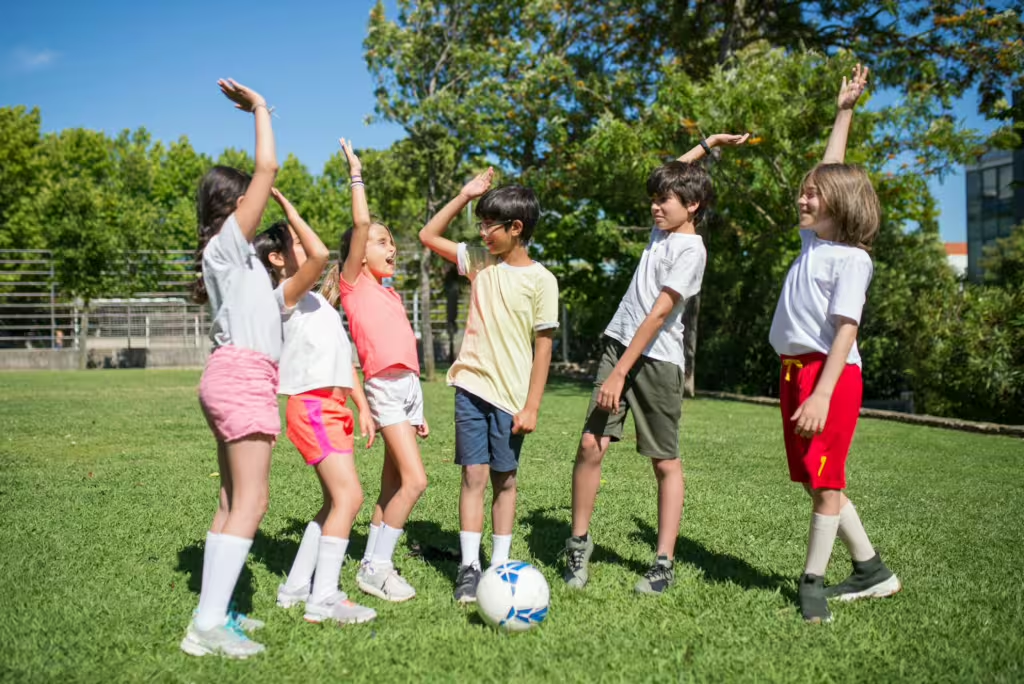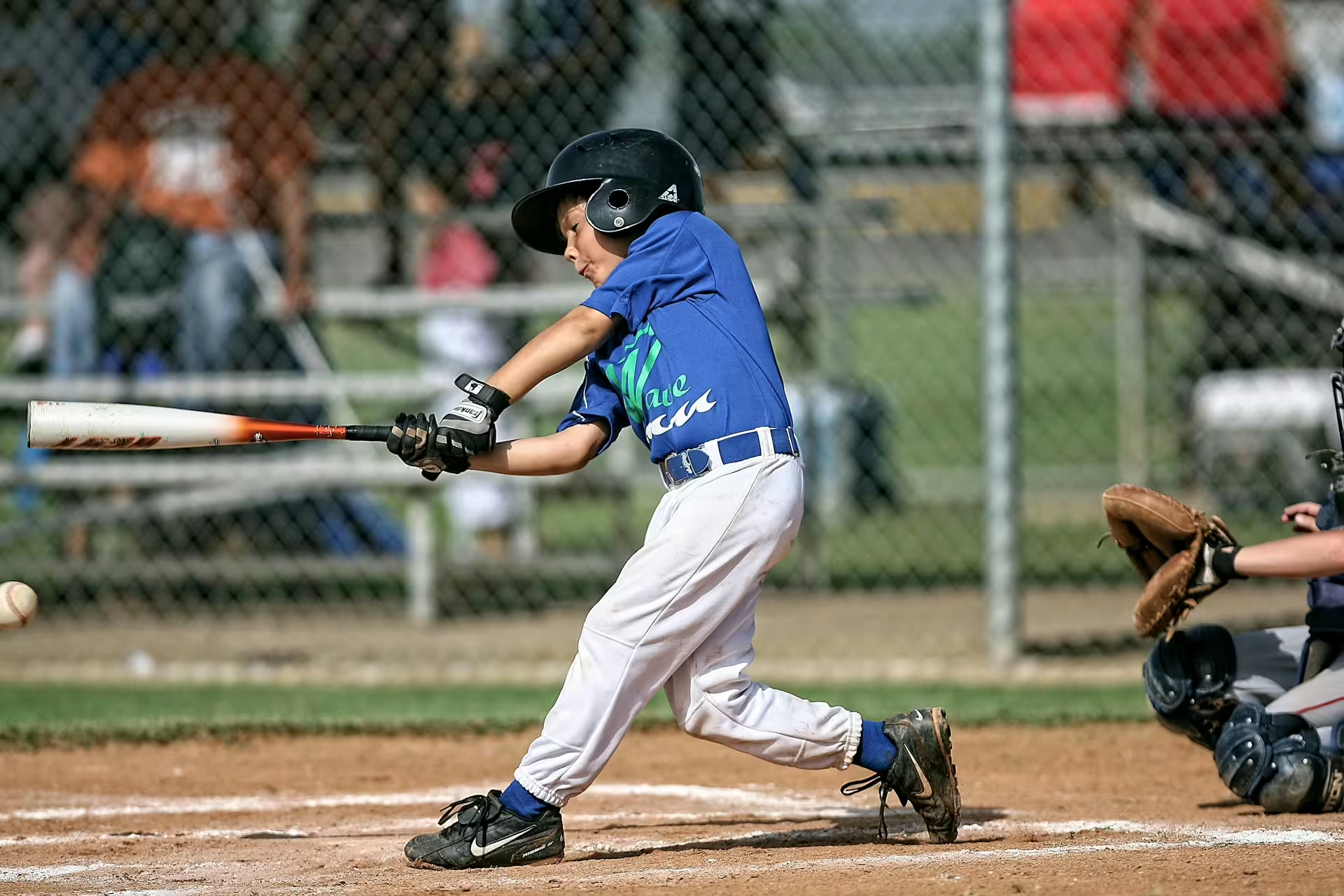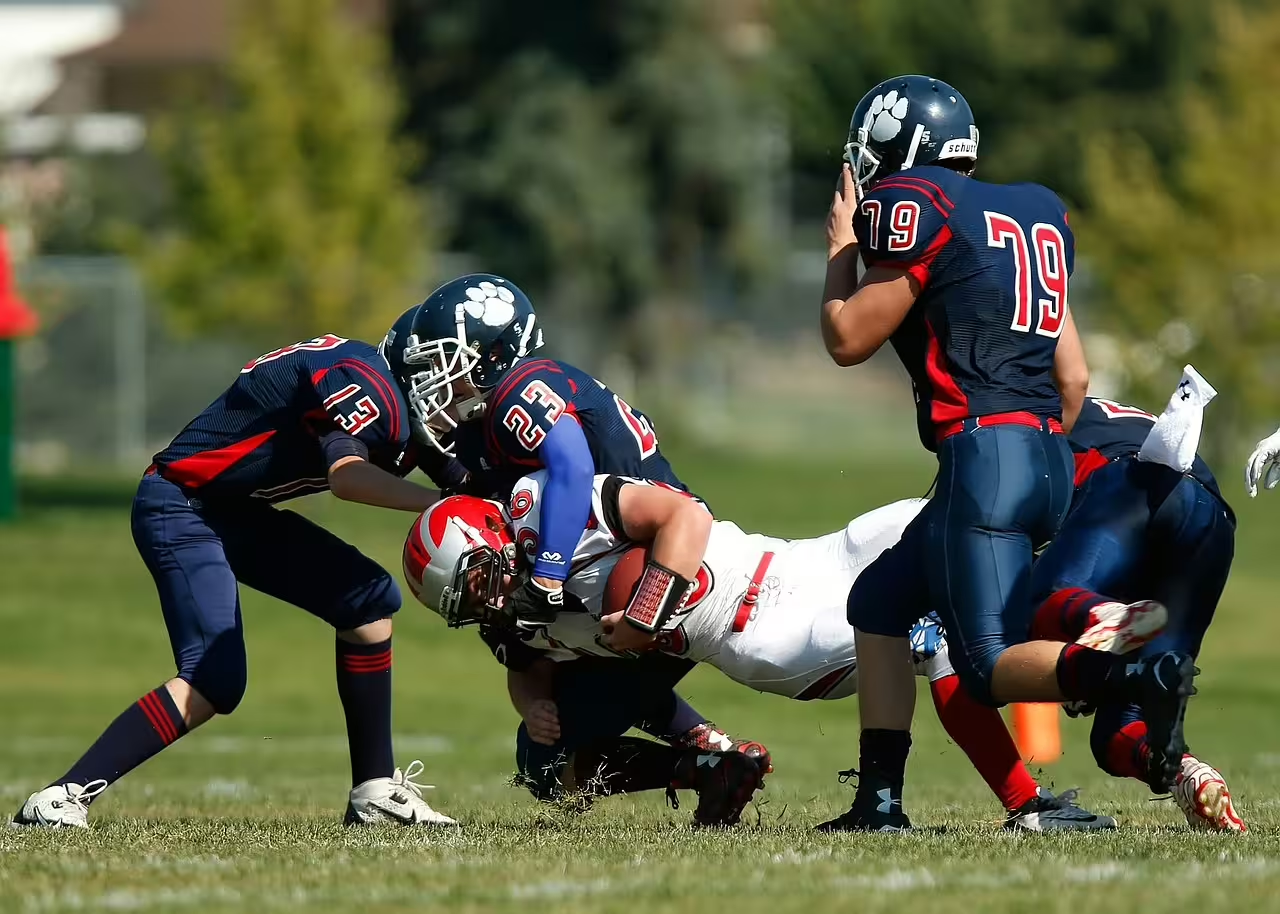Teamwork is often casually thrown around as a sort of innocuous buzzword; one that is synonymous with youth sports but ultimately doesn’t seem to be well-defined. And yet, teamwork, in and of itself, has to be more than just a buzzword. After all, outside of the sports field teamwork represents a vital life skill. Learning how to cooperate, communicate, and support others is foundational for a child’s success in school, relationships, and eventually, the workplace.
Many of us are fortunate enough to play youth sports and therefore have access to one of the best and most fun ways to introduce and reinforce teamwork. Through sports, children have the opportunity to learn how to be better teammates and, in turn, better individuals throughout their lives.
The truth is, team sports offer children a multitude of real-time scenarios where they can practice listening, compromising with one another, and encouraging each other. All of these aforementioned benefits are skills that extend far beyond the game. Through sports, children learn how to celebrate wins together and, more importantly, how to handle losses as a team without placing blame.
Additionally, these youth sports experiences help children build empathy, resilience, and emotional intelligence; all things that not every child is readily equipped with at the start. Sports also expose kids to a diverse range of personalities, pushing them to adapt and cooperate with teammates who may think or play very differently than they do.
Parents and coaches are perfectly placed to help facilitate these lessons in teamwork. As adults and role models, we can display good teamwork behavior such as: cheering for the whole team, encouraging effort over outcome, and emphasizing shared goals, so that our children can mimic and in some cases, begin to internalize those values. In time, the hope is that they too realize that success isn’t just about individual performance but about how well a group functions when working together.
In this article, we will walk parents through the fundamentals of teaching teamwork to your child through sports. To this end, we will offer practical tips, age-appropriate activities, and real-life strategies that parents can use to facilitate these lessons.
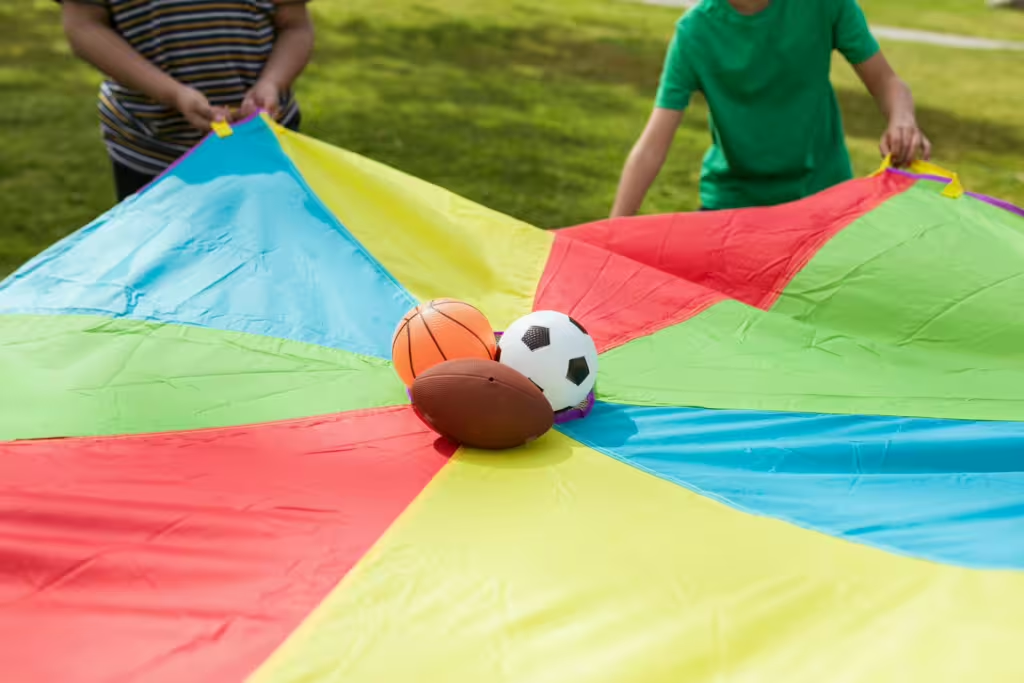
Why Teamwork Matters
Before we go over how parents might go about introducing teamwork to their child, it helps to understand its importance. Teamwork, in terms of team sports, involves playing a game together, but it is so much more than that. At it’s core, teamwork is about listening, sharing, encouraging others, solving problems collaboratively, and compromise.
Children who understand teamwork gain the following benefits:
- They develop stronger communication skills
- They show greater empathy and emotional intelligence
- They are more resilient when facing challenges
- They perform better in group academic settings
- They build more meaningful relationships
Team sports provide kids with a natural setting for these lessons and a natural way to put them into practice. Think of it this way; success often hinges on how well the team works together, not just how talented one individual might be. In this way, children can experience the real-time results of working together as a team!
Start With the Right Sport
While almost any sport can teach a child the value of teamwork, some are better suited for younger kids or beginners. Parents should consider starting with these options if teamwork is something you want to place focus on:
Soccer: The world’s favorite game is great for young children. Through soccer they learn about passing, positioning, and the valuing the role of each player.
Basketball: Basketball is fast-paced and helps with communication, quick decision-making, and constant collaboration.
T-ball/Baseball: America’s favorite pastime, baseball teaches young children about roles, shared goals, and strategic play.
Volleyball: This sport can be played anywhere and is a great summer activity. It encourages coordination and verbal support between players.
Relay races (Track or Swimming): Though track and field is often described as an individual sport, this event, in particular, emphasizes timing, support, and reliance on others.
Whatever you decide, be sure to choose a sport that aligns with your child’s interests and energy level. The more the kid enjoys what they are doing, the more engaged they’ll be in learning how to play and how teamwork helps it to be more enjoyable.
Teaching Teamwork by Age Group
Ages 4-6: Learning to Share and Take Turns
At such a tender age, children are only just beginning to understand the idea of working with other people. Sharing might not always come naturally, even if they have learned the ins and outs during their time in preschool. Nevertheless, team sports may be the kicker to shift those undeveloped notions into gear. Above all else, sports at this stage should be simple, fun, and focus on basic skills like taking turns, cheering for teammates, and understanding rules.
Activities:
- Mini soccer games are a great place to focus on passing rather than scoring.
- Relay races indicate that each child has a clear role to play.
- Partner drills enable children to help each other complete a task.
Tips for parents:
- Model cheering and encouragement from the sidelines, not just for your child but for all players.
- Praise sharing and turn-taking over winning in most cases.
- Keep games short and playful to maintain interest while attention spans are still in the growth phase.
Ages 7-9: Developing Communication and Cooperation
Once they have aged up, your children will be able to grasp more complex instructions. This means they are now ready to learn about cooperation and group goals. This is a key age to start reinforcing the idea that everyone’s contribution matters.
Activities:
- Small team games that require passing, assisting, or defense are a great way to bump up the teamwork quotient.
- Strategy discussions before or after games (“What can we do better as a team?”) are also helpful here, as children can grasp the concepts better.
- Team-building games like “human knot” or obstacle courses can help the team unit become stronger.
Tips for parents:
- Parents should highlight examples of good communication and effort during games.
- Try and ask reflective questions like, “How did helping your teammate feel?”
- Encourage post-game chats focused on the effort everyone put into the performance, not just outcome of the match.
Ages 10-12: Mastering Roles and Problem-Solving
At this stage, preteens should be more than capable of handling additional responsibility. They should be very familiar with the nuances of teamwork as well. This is the age when kids can fully appreciate team roles, leadership, and accountability.
Activities:
- Try and assign rotating team captains throughout the season, this will promote the idea of leadership.
- Watching and analyzing pro games together will give real world examples to talk about in terms of teamwork.
- Parents and coaches can encourage peer coaching during practice (kids giving tips to teammates).
Tips for parents:
- At home, parents should reinforce the idea that mistakes are learning opportunities, not mere foibles.
- Take time to discuss sportsmanship and respect for referees, coaches, and opponents.
- Celebrate team achievements with the whole team, even if you want to laud individual stats. Make the former a priority whenever possible,
The Parent’s Role in Teaching Teamwork
Remember, you don’t have to be a coach to help your child learn teamwork. In fact, your role as a supportive, engaged parent is just as crucial as that of the coaches and assistants.
Be a Role Model
Children learn from what they see. This is why it’s important that parents demonstrate teamwork in everyday life by:
- Involving your kids in family chores with group goals
- Participating in community events together, as a family unit
- Talking about how you work with colleagues at your job to achieve success
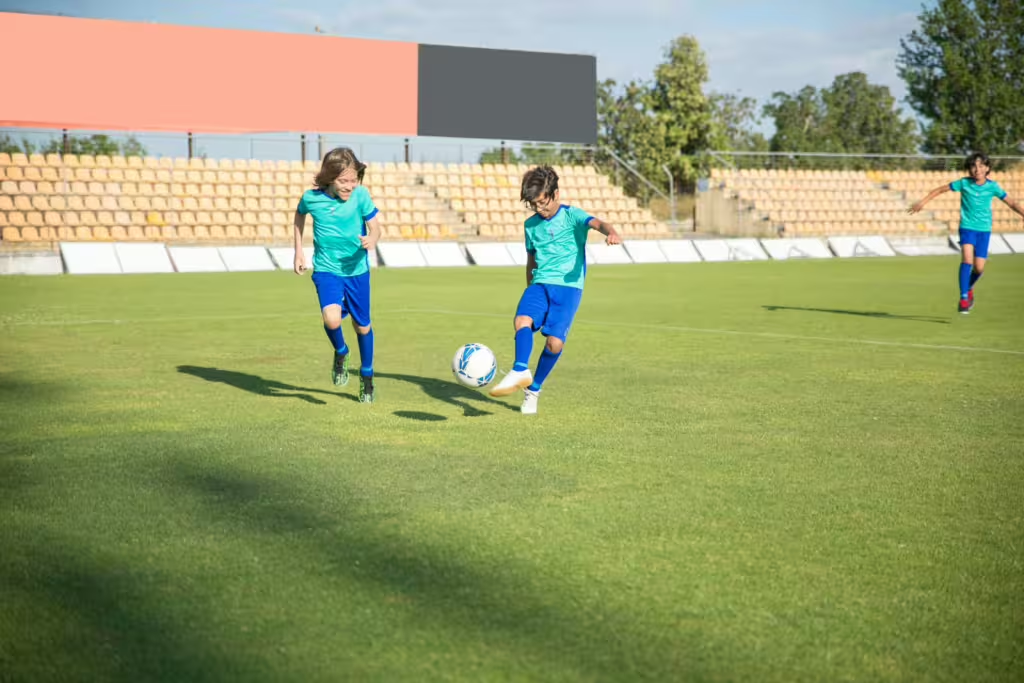
Provide Constructive Feedback
In all things, parents want to be focused on behaviors, not outcomes. Therefore, instead of saying things like, “Why didn’t you score?” try, “I saw you pass the ball to your teammate – that was great teamwork.” This might seem at cross-purposes when your child is trying to win games, but it is important for getting the concept of teamwork across. Wins will come and when they do, we are all about congratulating your child for their success, celebrating with them, but wins cannot be the only reason that they play.
Shifting the focus shifts the emphasis from winning or personal achievement to the collaborative skills that sports are meant to develop. Children thrive on encouragement of any kind, but those that highlights effort, cooperation, and improvement will be much more useful to them in the long run than those that focus only on the wins.
Encourage Practice Outside of Games
Parents with an eye toward increasing their child’s understanding of teamwork might begun by setting up friendly backyard game or playing catch with their kids. These low-pressure activities are great ways to reinforce communication and cooperation in a simple, understandable way. Informal play lets kids focus on fun without the pressure of winning or performing for an audience. You could even introduce cooperative challenges like building a mini obstacle course together or playing passing games that require listening and timing.
Celebrate Team Milestones
As parents of team players, it often falls to us to join in and be part of that team; however ancitllary the position may end up being. Parents should celebrate their child’s team’s achievements, even if they result in a loss. You can do this verbally or by helping out: bringing snacks for everyone, making posters, and offering encouragement to all members of the team.
This type of behavior helps children see value beyond the scoreboard. Highlighting teamwork-focused achievements—like improved passing, better communication, or supporting a struggling teammate—sends the right message; that growth and cooperation matter more than a win in every way. Parents can also plan team get togethers outside of practice, playdates or trips to the park where kids can talk, play, and just learn to be friends. In the end, the key to a successful team unit are understanding, hard work, and often-times, friendship.
Real-Life Teamwork Skills Sports Help Develop
When kids practice teamwork in sports, they’re not just getting better at the game or making the right plays. They’re building transferable life skills that will help them way down the line. Things like:
- Leadership: Taking initiative, setting an example, guiding peers are all great forms of leadership.
- Accountability: If your child owns their performance and learns from their mistakes, they are doing quite well in terms of accountability.
- Empathy: Understanding one’s teammates’ emotions and needs is an excellent way to learn the value of empathy.
- Conflict resolution: Working through disagreements respectfully and without fighting show excellent conflict resolution tactics.
- Patience and persistence: Staying committed even when it’s tough is a benchmark of true resilience.
All of these skills have long-term benefits for children in school, through friendships, relationships, and in their future careers.
What to Do When Teamwork Goes Wrong
Even with the best intentions, your child is sure to face challenges: teammates who don’t pass, arguments on the field, or the frustration of a team loss. These moments are not setbacks but golden opportunities to reinforce teamwork values!
Here are a few tips parents can use when handling rough patches:
- Listen first: Let your child explain how they feel without judgment before offering advice.
- Ask guiding questions: “What could you say to your teammate next time?” or other such questions are great examples.
- Share your experiences: Tell your kid stories of times you had to work through team challenge, maybe an anecdote about work or your own sports experience.
- Talk about growth: Emphasize that everyone is learning, everyone is different, and everyone makes mistakes. The trick is to take these errors in stride and strive to do better.
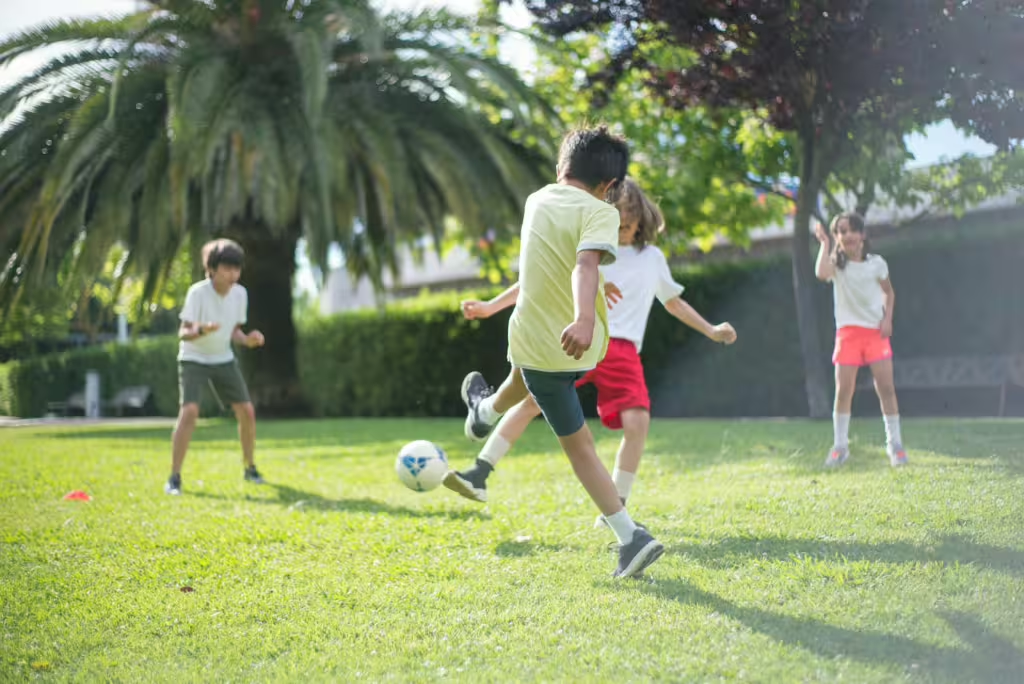
Cultured Athlete Says…
As you can see, teaching your child teamwork through sports is one of the best ways that you can prepare them for their future. Teamwork builds a person’s character, empathy, and resilience. It prepares children for the many challenges they’re sure to meet far beyond the boundaries of the sportsfield.
The trick is to start small and begin early. Be consistent with what you’re trying to impart and don’t shy away from social activities, even if your child isn’t grasping the base concepts in the beginning. Most importantly, make the experience fun for them. With your support and the lessons learned in team sports, your kid will not only grow into a better athlete but also a better friend, a better student, a better partner, and a better human being.
Discover more from CulturedAthlete
Subscribe to get the latest posts sent to your email.

